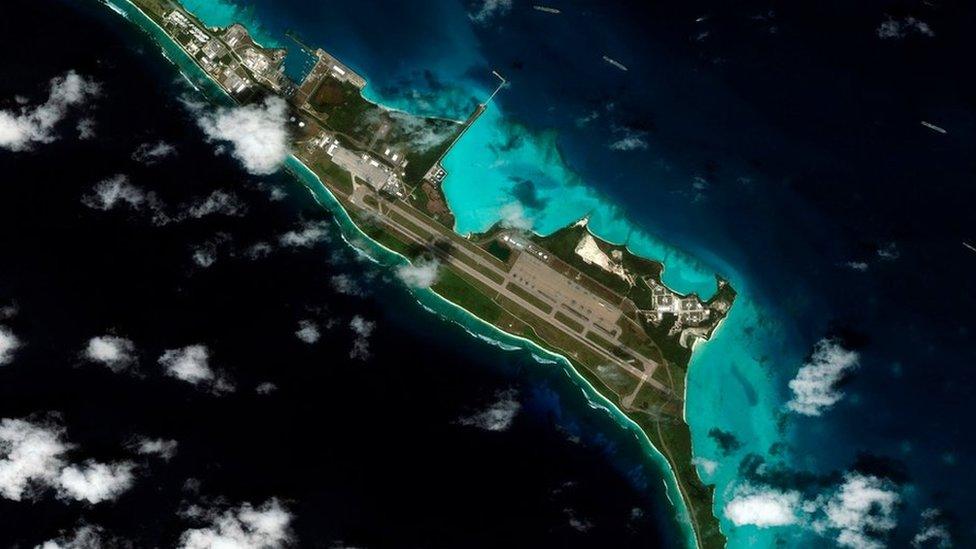Chagos Islands dispute: UK 'threatened' Mauritius
- Published
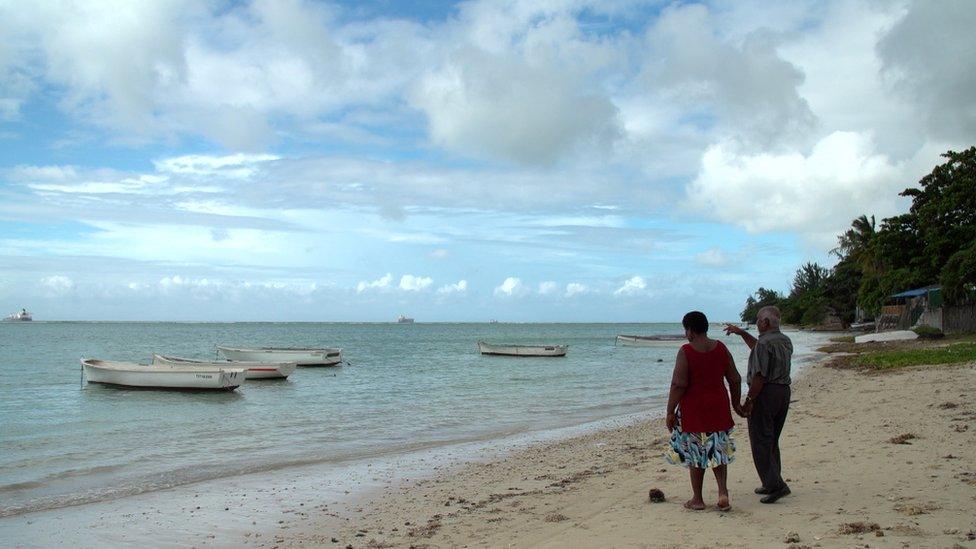
Samynaden and Daryela Rosemond had to leave their home on the Chagos Islands
The British government has been accused of threatening a close ally in an increasingly bitter diplomatic tug-of-war over the fate of a tiny, strategic archipelago in the middle of the Indian Ocean.
The dispute over the Chagos Islands - home to the US military base on Diego Garcia - is being portrayed by some as an indication of Britain's waning influence on the world stage following the Brexit vote.
Next week the issue will come before judges at the International Court of Justice (ICJ) in The Hague.
"We have had verbal threats," said the Prime Minister of Mauritius, Pravind Jugnauth, in an interview with BBC News.
He did not dispute a report that Britain's former Foreign Secretary Boris Johnson had called him personally to pressure Mauritius to back down on its demand that the islands be returned after decades under UK control.
"Unfortunately, we have been threatened with retaliation… on issues of trade and on issues of investment, you know, and on our relationship with the UK," Mr Jugnauth added.
'Dangerous precedent'
Asked about those threats, a spokeswoman for the British Foreign Office declined to respond directly but said "we are disappointed that Mauritius have taken this bilateral dispute to the International Court of Justice for an advisory opinion.
"This is an inappropriate use of the ICJ Advisory Opinion mechanism and sets a dangerous precedent for other bilateral disputes. While we do not recognise the Republic of Mauritius's claim to sovereignty of the archipelago, we have repeatedly undertaken to cede it to Mauritius when no longer required for defence purposes, and we maintain that commitment."
It is half a century since the UK took control of the Chagos Islands from its then colony, Mauritius, and evicted the entire population, before inviting the United States to build a military base on Diego Garcia, one of the larger atolls.
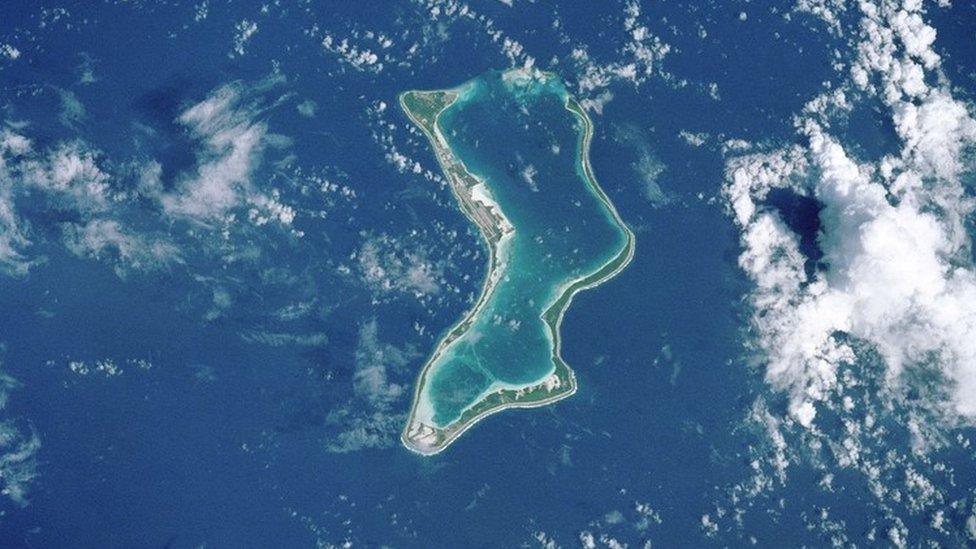
Diego Garcia, as seen from space
Mauritius was in the middle of negotiating its independence from the UK at the time and has repeatedly condemned the deal.
"It was real blackmail," said Sir Anerood Jugnauth, 88, father of the current prime minister and now the only surviving participant of the negotiations with then-British Prime Minister Harold Wilson.
Mr Jugnauth said Mr Wilson told the Mauritians that "if you don't agree to what I am proposing [about the Chagos Islands] then forget about independence."
'End of empire'
Although the UK says it will hand the islands back to Mauritius when they are no longer required for defence purposes, the Mauritian government appears to be losing patience.
It recently embarked on a diplomatic campaign to win international support for the islands' return.
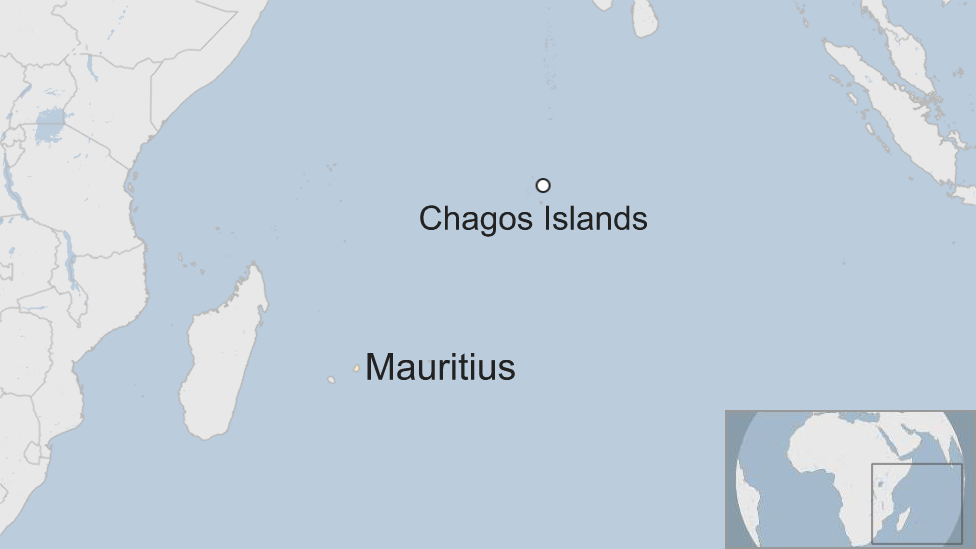
Last year, the UK suffered a humiliating defeat at the United Nations general assembly when members voted overwhelmingly to send the matter to the ICJ in The Hague.
It was in the run-up to that vote - at which the UK's traditional European allies, including France and Germany, chose to abstain - that Mr Johnson is alleged to have called the Mauritian prime minister.
"After the Brexit vote, support for the UK collapsed," said Philippe Sands, the British lawyer who is representing Mauritius.
"Britain has fallen off its pedestal. I think we're seeing a story here about… the end of empire and the end of colonialism in a small part of Africa in the Indian Ocean, coinciding with a moment when [Britain] seems to be turning inward."
Some of those who were forced to leave their homes on the Chagos Islands in the late 1960s are now hoping they will soon be allowed to return - and not just on one of the rare visits authorised by the UK.
'The British didn't give us a chance'
"Back home was paradise," said Samynaden Rosemond, 81, who left when he was 36.
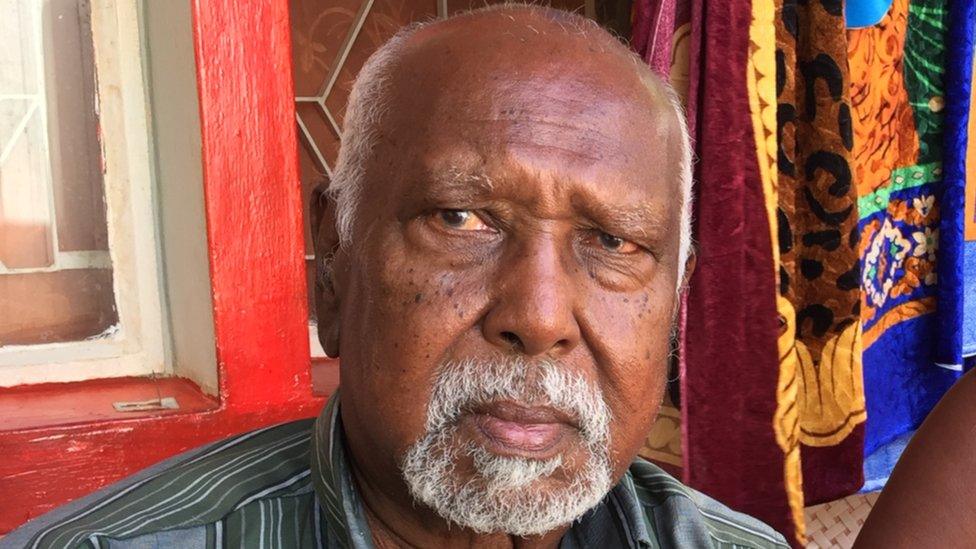
Samynaden Rosemond hopes he can return to the Chagos Islands before he dies
He lives in Mauritius with his wife Daryela in a small house on the outskirts of the capital, Port Louis.
Chagossians often complain that they are treated as second-class citizens in Mauritius, and they often gather to cook coconut and fish curry and to sing songs about the life they left behind.
"The British didn't give us a chance. They just said: 'Oh, this is not yours any more.'
"If I die here my spirit will be everywhere - it wouldn't be happy. But if I die there I will be in peace," he said.
- Published11 August 2015
